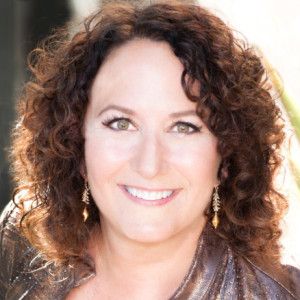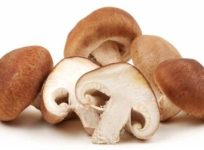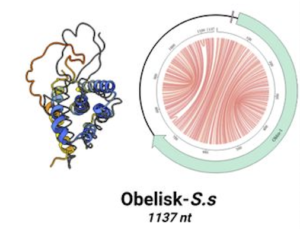Screening for postpartum depression requires pediatricians, obstetricians and midwives to all work together, especially in conjunction with well-child visits, to help prevent problems and catch the disorder early, before it becomes detrimental to not only the mother, but to her entire family.
Dr. Bennett stresses that the screening environment is every bit as important as the  questions asked. “Women are often reluctant to reveal their dark thoughts and emotions because they don’t want to be grouped with the psychotic mothers they see on the TV news who drown their children,” she says.
questions asked. “Women are often reluctant to reveal their dark thoughts and emotions because they don’t want to be grouped with the psychotic mothers they see on the TV news who drown their children,” she says.
Whatever disturbing or distressing symptoms a new mother is experiencing, she needs to be reassured that those symptoms are entirely treatable and there is no reason to be ashamed or afraid to ask for professional help. “Without solid mental health, even the best physical health can’t be enjoyed to the fullest.”
One of the big challenges for women at risk for PPD is that they often get volleyed back and forth between specialists, none of whom are well equipped to deal with the problem. Gynecologists often view PPD as a “mental health” issue and shunt the patients to psychiatrists, who view the problem as a “pregnancy issue” and try to shuttle the patient—and the problem—back to the ob.gyn.
A Treatable Condition
Screening, preventing and treating PPD should be as important to clinicians as detecting and treating any other life-threatening illness. Depending on patients’ preferences and the seriousness of the condition, most moms prefer a holistic approach to recovery.
Dr. Bennett recommends a basic wellness strategy, and once in place, the patient is “off and running.” She advises patients to:
- Balance carbohydrates with protein at least every three hours, which then stabilizes the insulin level, improves mood and decreases inflammation.
- Feed themselves first, then their babies.
- Sleep at least a couple hours at a stretch at night to help protect serotonin levels.
- Wear low blue-light glasses two to three hours before bed, as it helps with sleep, blocks blue light, and allows melatonin to flow.
- Exercise, which will lower inflammation and improve mood. Even if a patient is recovering and cannot physically strain herself, she can practice breathing techniques to help oxygenate the brain.
Moms with PPD also need to have some sort of emotional and physical support system in place after birth. Dr. Bennett typically asks new moms to pick one practitioner that will help optimize her healing.
She has found that acupuncture and magnetic stimulation also show promise in treating depression. Morning “bright light therapy” (natural sunlight or special light boxes) is already being used as an alternative to medication.
Fixing Nutrient Deficiencies
Addressing nutritional deficiencies is essential for ameliorating PPD. Dr. Bennett strongly recommends:
- Essential fatty acids, especially those that are higher in EPA and DHA like Nordic Naturals, help decrease inflammation and directly affect mental health issues.
- Folic acid supplementation, folate-rich foods like broccoli and spinach, as well as vitamin D, all of which can optimize mood.
- B vitamins, to help with anxiety and raise energy, especially with the use of inositol for anxiety and agitated depression.
- Probiotics, to help stabilize the microbiome
Since pregnancy and the postpartum period are characterized by extreme changes in the hormonal milieu, it makes good sense to keep a close eye on hormone levels in women with PPD. This is especially true for the thyroid. Dr. Bennett advises checking thyroid levels every 3 months in the postpartum period.
Getting Rid of Guilt
Dr. Bennett’s approach to psychotherapy is specific to each patient, but she has observed that guilt is a very common factor among nearly all women with PPD. Often it is a predominant emotion behind the depression.
Social pressures on new moms can induce guilt in myriad ways, not the least of which are the judgmental attitudes with which many people view a woman’s decision to breastfeed—or not.
“Guilt has no healthy place and is only the means to manipulate. Motherly worth is not found by the way she chooses to feed her baby,” Dr. Bennett told Holistic Primary Care.
Working on positivity is an important part of her therapy. “One of my most favorite exercises is to lead my clients through making a list of all the wonderful things that have improved, they’ve discovered, or never would have happened had they NOT gone through the depression.” One key aspect of the healing process is to help patients find the “silver linings” hidden in their cloudy experiences.
“Without the depression, they wouldn’t have emerged stronger, healthier (all the way around), and with strengthened relationships than ever before!” she adds.
With more thorough attention to this common but often ignored problem, we clinicians can help our patients move through the darkness of PPD and into the light.
END
Madiha Saeed, MD is a holistic family physician in Bend, Indiana. She trained at National University of Science and Technology and completed her residency in 2010 at St. Joseph Regional Medical Center. She is board certified in both Family Medicine and Integrative Holistic Medicine, and has a particular passion for womens’ health and family health issues. A busy mother of four young boys, Dr. Saeed shares her “walk the talk” nutrition & lifestyle tips and her lively “bring it on” spirit with families worldwide via her HolisticMomMD website, and her new book The Holistic Rx.







